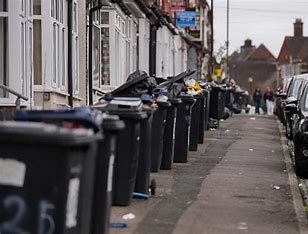Introduction: The Cost of Living vs. the Cost of Survival
In 2025, the average person in the United Kingdom is earning less, spending more, and watching opportunities slip further out of reach. A living wage — once defined as the amount needed to afford a modest but decent standard of living — is no longer keeping pace with housing costs, energy bills, or inflation. This isn’t just a crisis of affordability. It’s a crisis of economic structure, social cohesion, and political direction. As housing prices climb, wages stagnate, and the gap between what people need and what they have continues to grow, we must ask: How did we get here, and what can be done? This article explores the causes, implications, and possible solutions to the living wage crisis in the UK — in a world shaped by globalisation, automation, and deepening cultural divides.
1. The Economic Foundations: A Broken Model
For decades, the UK (like many Western nations) shifted its industrial base offshore to lower-cost countries like China, India, and Vietnam. This allowed corporations to benefit from cheaper labour and materials — but at a cost:
- Domestic manufacturing collapsed
- High-skill jobs were replaced by low-wage service roles
- The national wage base was weakened
At the same time, the cost of housing — artificially inflated through deregulation, speculation, and cheap credit — soared. The result? A growing mismatch between what people earn and what it costs to live. In the US, Donald Trump responded with tariffs and domestic incentives, trying to restore local industry. While controversial, the strategy sparked a real debate: Can a high-cost economy remain competitive and equitable without reshoring essential production? In the UK, however, such questions have largely been sidestepped — and the consequences are being felt most keenly by workers.
1.5 What Is a Living Wage — Really?
The term “living wage” is often misunderstood. It’s not just about survival — it’s about living with dignity. It should cover:
- Housing (rent or mortgage on a modest home)
- Utilities (energy, water, internet)
- Healthy food
- Transportation
- Childcare (if needed)
- Healthcare costs
- Education access
- Modest savings and recreation
In the UK, even £12/hour — the proposed “National Living Wage” for 2024 — translates to around £24,000 per year for full-time work. But this barely covers basic expenses in most parts of the country, especially where housing prices are inflated. By contrast, independent research suggests that in many urban areas, a truly sustainable living wage would be:
- £18–£22/hour, or
- £35,000–£45,000/year (net)
Yet most jobs in retail, care work, hospitality, logistics, and even public services don’t come close. This means millions of full-time workers still rely on government support, food banks, or side gigs just to survive. When people can’t afford homes, can’t raise families, and can’t save for the future — it’s not just a personal problem. It’s an economic failure.
2. The UK in Transition: Aging, Immigration, and Declining Birth Rates
The UK’s demographic shift is undeniable:
- An aging population means fewer working-age people supporting more retirees
- Declining birth rates suggest long-term labour shortages
- Mass immigration, in response, has been encouraged to fill gaps in the workforce
But immigration alone cannot solve systemic economic issues. Without planning, it adds pressure to housing, public services, and community cohesion. At its worst, it is exploited for short-term political gain, with little concern for long-term integration or equality of opportunity. The issue is not immigration itself, but the lack of economic reform that must accompany it. Bringing in more people to work low-wage jobs in a broken system only extends the dysfunction.
3. Manufactured Distraction? The Role of Political Strategy
In a time of economic hardship, culture wars and identity politics offer tempting distractions for politicians. Some argue that appealing to religious or ethnic voting blocs is part of a broader strategy — particularly in areas with strong concentrations of new communities. But this short-termism erodes national unity. When politics becomes about group loyalty instead of shared progress, the result is stagnation. The public sector pay disputes, like the Birmingham bin strike, reflect broader frustration with a system that promises fairness but delivers precarity.
4. Culture, Control, and the Clash of Ideologies
A deeper cultural issue lurks beneath economic frustrations. With rapid demographic shifts come competing worldviews, especially when some imported ideologies challenge core British values. Here, it’s vital to be clear:
- Muslims, Sikhs, Christians, Jews, and people of all backgrounds are valuable members of UK society.
- But extremism — of any kind — must be addressed, especially when it seeks to create parallel legal systems or promote theocratic control.
Islamism, as a political ideology (not a religion), poses challenges when it conflicts with democratic law and rights. It’s not alone — extremist Christian, Hindu, or secular authoritarian ideologies can be just as dangerous. The key is upholding one rule of law, and ensuring integration, not segregation. Without a unified social contract, no economic plan can succeed.
5. Global Harmony or National Resilience?
The logical extension of globalisation is a one-world system. But unless prices, wages, and rights are harmonised, that system will favour the powerful few. The World Economic Forum (WEF) and the EU often promote global cooperation, but many citizens feel left behind by top-down policies that ignore realities on the ground. Without serious discussions on levelling wages, protecting local industry, and preserving national autonomy, global governance can start to resemble economic colonialism. Alternatively, some propose a basic universal income model, where people are given enough to live without necessarily working. But critics argue this could usher in a surveillance-based, totalitarian welfare state, where freedom is traded for security. Neither future is inevitable — but both are possible.
6. Changing the Status Quo: A Realistic Reform Agenda
To restore balance and dignity to work, the UK must act boldly. Here’s what needs to happen:
🛠️ Economic Reform
- Reshore strategic industries (tech, energy, food, medicine)
- Invest in apprenticeships and re-skilling, especially for youth
- Tax wealth and speculation, not just labour
🏘️ Social Investment
- Build truly affordable housing at scale
- Cap rent increases and control mortgage manipulation
- Modernise public transport and digital infrastructure
🧭 Cultural and Legal Clarity
- Uphold one legal standard — UK law for all, no exceptions
- Support integration through education, language, and shared values
- Combat all forms of extremism without stigmatising entire groups
🗳️ Political Courage
- Encourage long-term policymaking, not electoral gimmicks
- Reform political funding to reduce lobbying by special interests
- Create citizen assemblies for direct democratic input on big issues
Conclusion: A Future Worth Building
The living wage crisis is not just about money. It’s about what kind of society we want to be. We’ve created an economy that is no longer competitive in the global market, and it’s failing to deliver value to millions of people. We argue, complain, strike, and suffer because we’ve commodified human lives — while wealth flows upwards to the few. In a nation of deep history, global influence, and cultural richness, this isn’t acceptable. When people work full time and still can’t afford a home or build a future, the system is broken. We need a reset — one that doesn’t ask people to choose between survival and dignity. One that recognises the need for fair wages, local production, transparent politics, and shared national purpose. If the UK can rebuild around fairness, unity, and resilience, it can still lead the world — not just economically, but morally and socially. Let’s get to work.






